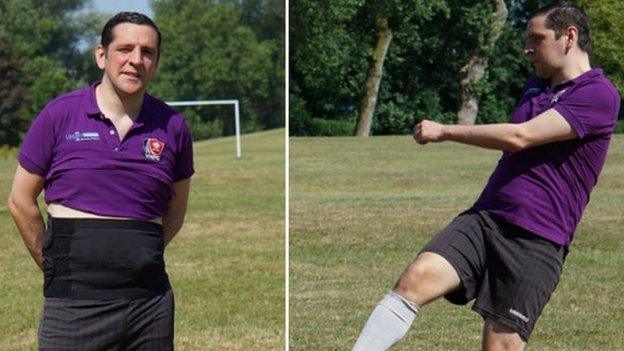Boy, 6, lives in isolation during brain cancer treatment
- Published
Little six-year-old Mason is receiving treatment for brain cancer
Mason is six. He likes the things that most six year olds like - watching Paw Patrol, playing with his friends and going to the park. But eight months ago he was diagnosed with brain cancer and for the last two months has been forced to live in a room with just his parents for company.
Mason is undergoing gruelling treatment that has left his immune system weakened. In her own words, his mother Dee Peppiett, 54, from Ebbw Vale, explains how this isolation affects her little boy and their wider family.
Few people understand what it is like to have a child with cancer.
First there is a terrible sense of helplessness - a deep desire to take away their pain or go through it for them.
You feel out of control and useless, unable to protect your child.
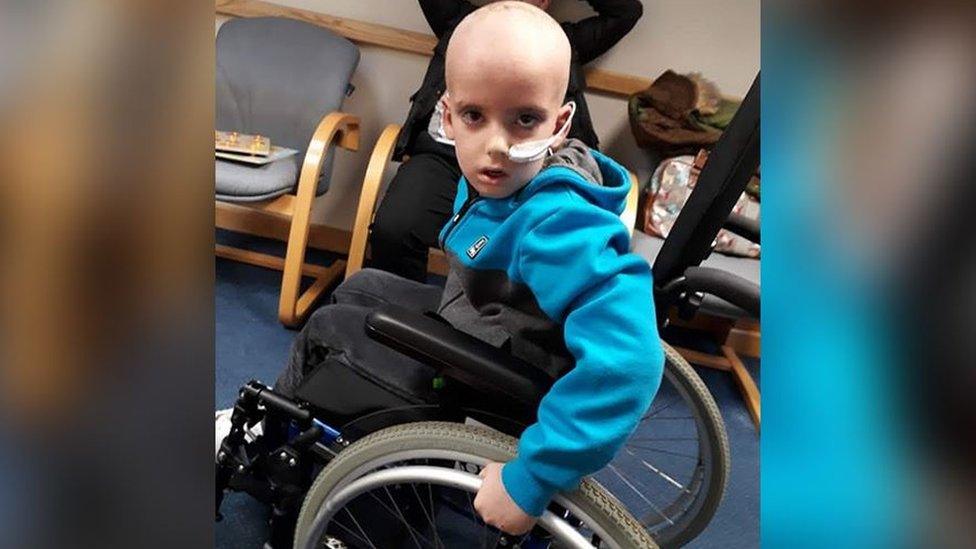
Mason was diagnosed with brain cancer in February 2018
But almost as bad, are the practical implications.
For my son, Mason, his illness means he is too poorly to spend time on a normal children's cancer ward.
'Sees no-one'
Instead, he is cooped up in an "isolation" room, cut off from the world.
He is only allowed to come into contact with myself and his dad, then the essential doctors, nurses and play leader, who wear protective gloves and masks whenever they venture near.
Other than that, he sees no-one.
He cannot play with other children or receive visits from his friends.
He cannot see his siblings - they have to FaceTime him to stay in touch.
He cannot breathe fresh air through an open window - it is locked closed at all times.
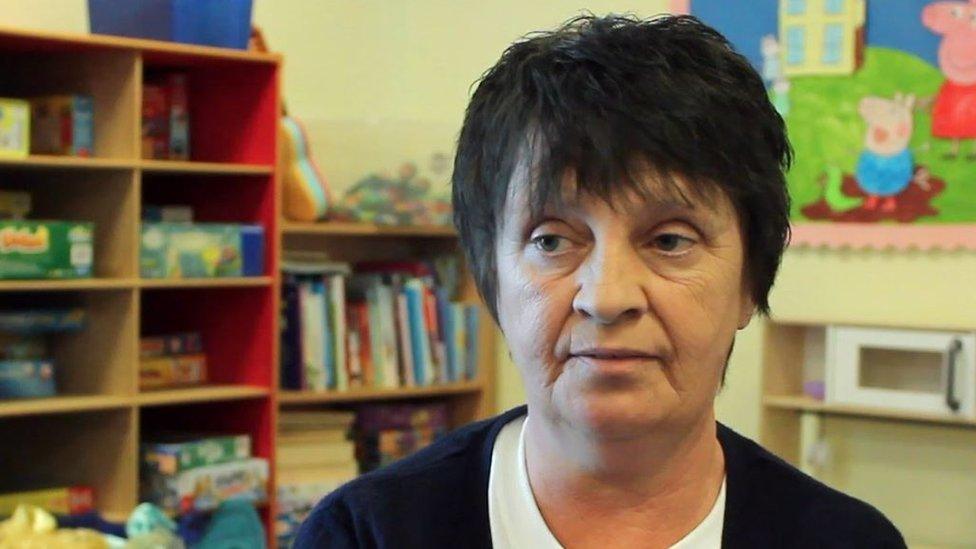
Dee sleeps by Mason's bedside each night
He cannot even bring in his familiar toys, teddies and clothes from home - everything has to be brand new, free of any contamination.
In effect, he is in prison.
It has been like this since his diagnosis last February.
Mason is the youngest of our four children - a happy boy who loved playing with Paw Patrol and going to the park.
In the new year, his father, Derek, 56, and I noticed he was unwell.
He had lost 16kg in weight, and wanted to sleep all day and not walk anywhere.
'Damage to mobility'
After a few false starts with doctors, who initially thought he had a virus, he was eventually diagnosed with a brain tumour, something I had never, ever imagined.
I was absolutely stunned but surgeons moved quickly, operating on him just three days later.
After seven hours in surgery, they managed to remove 99% of his tumour, causing a degree of damage to his mobility and the nerves controlling his mouth and eyes.
But they had to leave 1% as it was too dangerous to remove.
Now we are waiting to see what happens.
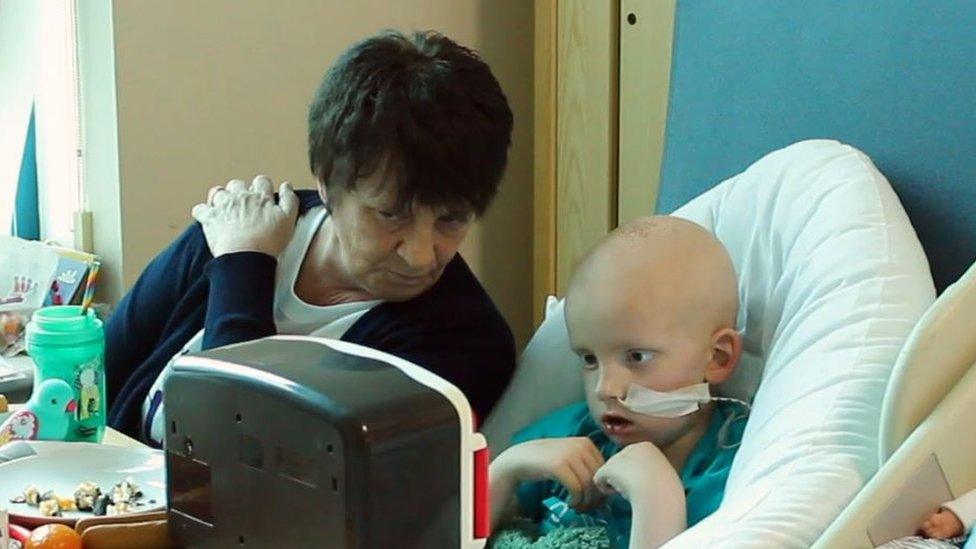
The treatment has left Mason with a weakened immune system
This remaining tumour has already started growing again.
But Mason is due more chemotherapy soon so we won't know his prognosis until after that.
By the time he has been through that, Mason will have spent eight weeks - or two months - in isolation.
The toll this takes on him is enormous.
He is incredibly bored, spending most of his time watching videos and songs on YouTube, which he joins in with.

You may also like:

Apart from this, he mostly sleeps.
As for Mason's father and I, the impact of his diagnosis and isolation are also enormous.
For the past nine months, we've hardly left his side, save for the odd stroll around the hospital grounds.
I sleep in his room at night, his dad sleeps in a room upstairs in the hospital and our lives are completely on hold.
I have had breast cancer and undergone chemotherapy and radiation.
Yet still it was nothing compared to what Mason is going through.
You simply don't expect your child to get cancer, and seeing him on his own, cut off from the world and his loved ones, is just the hardest, hardest thing.
- Published1 October 2018
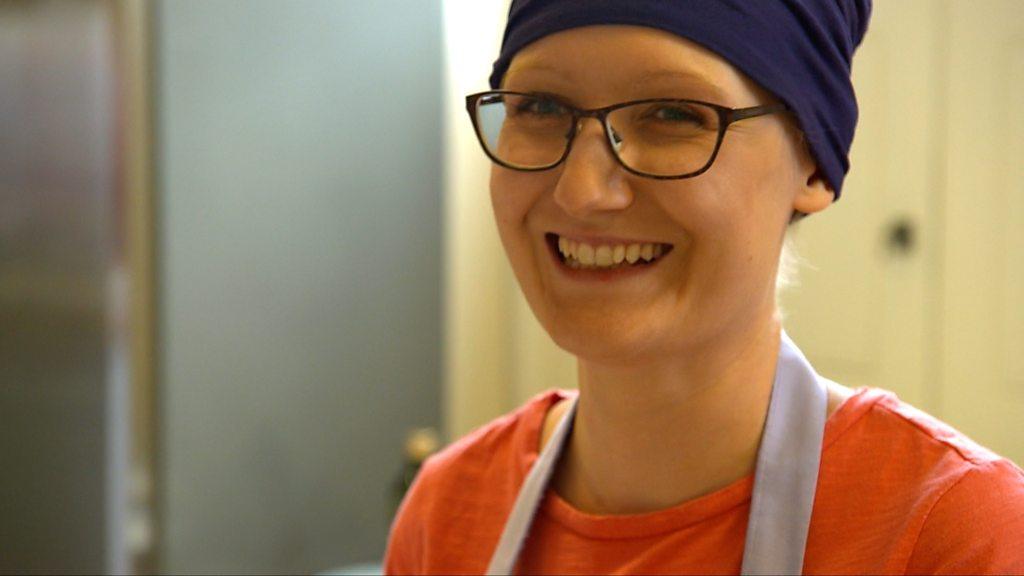
- Published12 September 2018
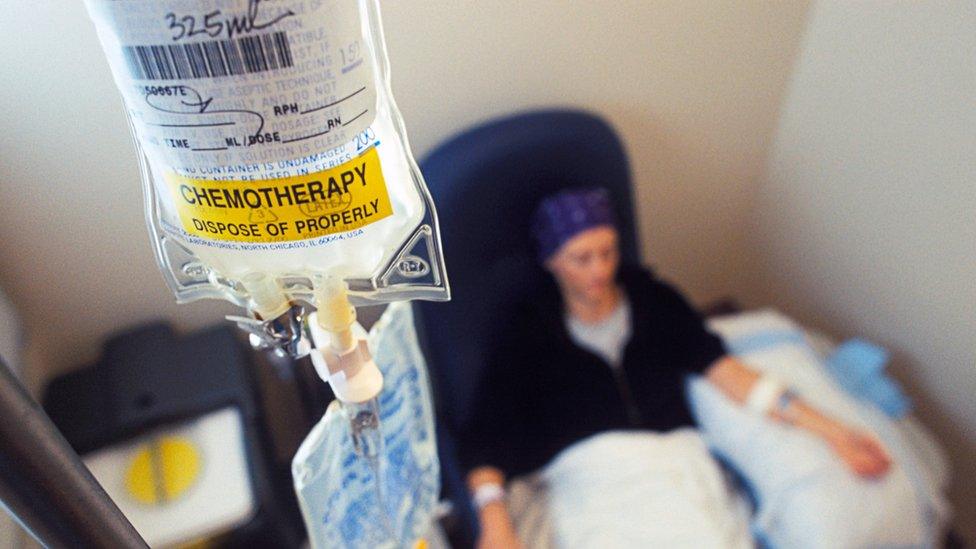
- Attribution
- Published13 September 2018
